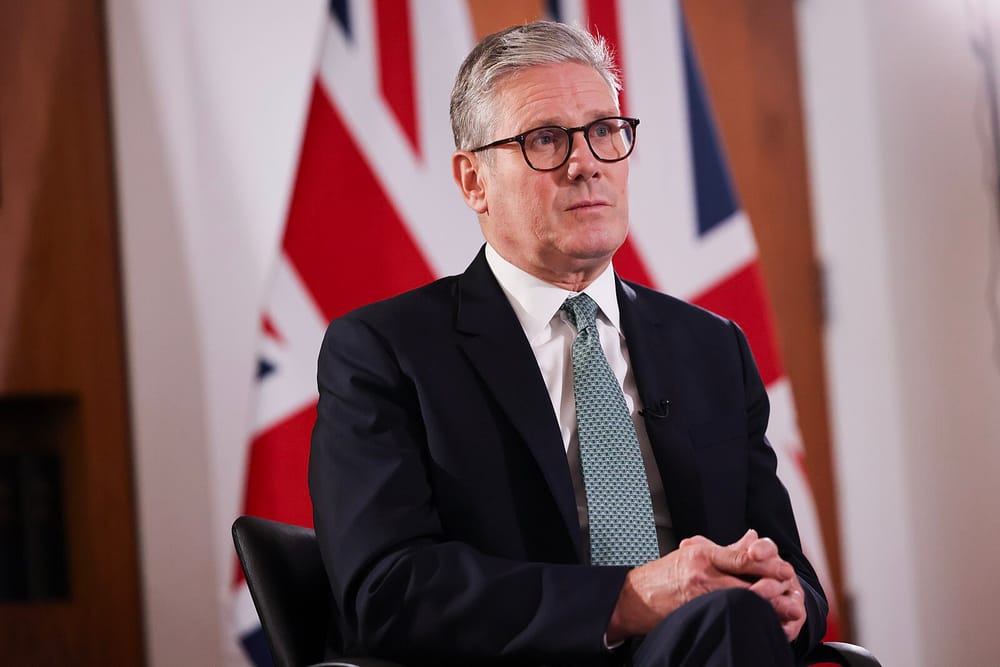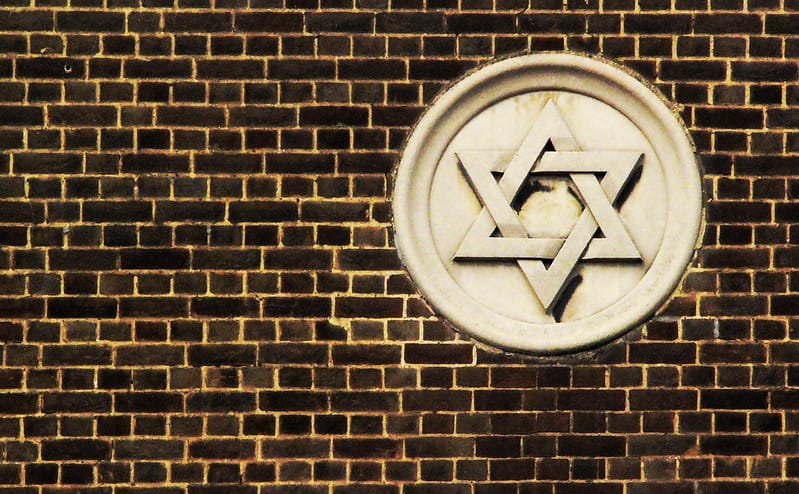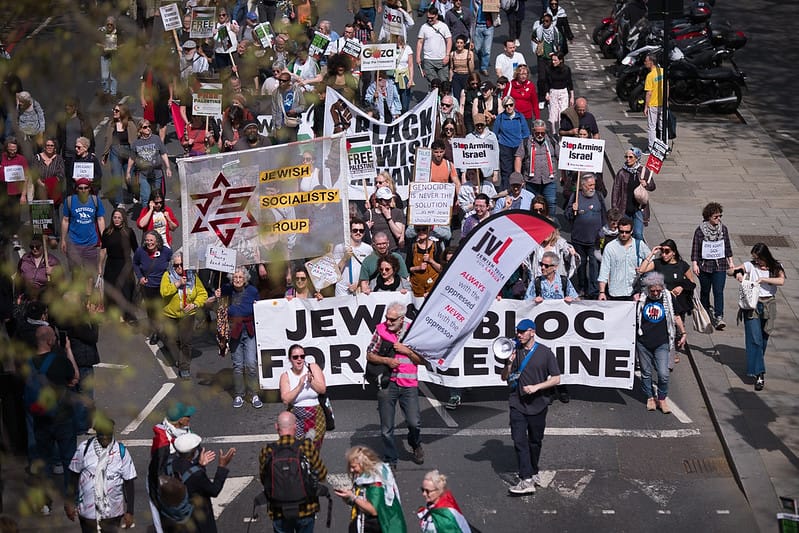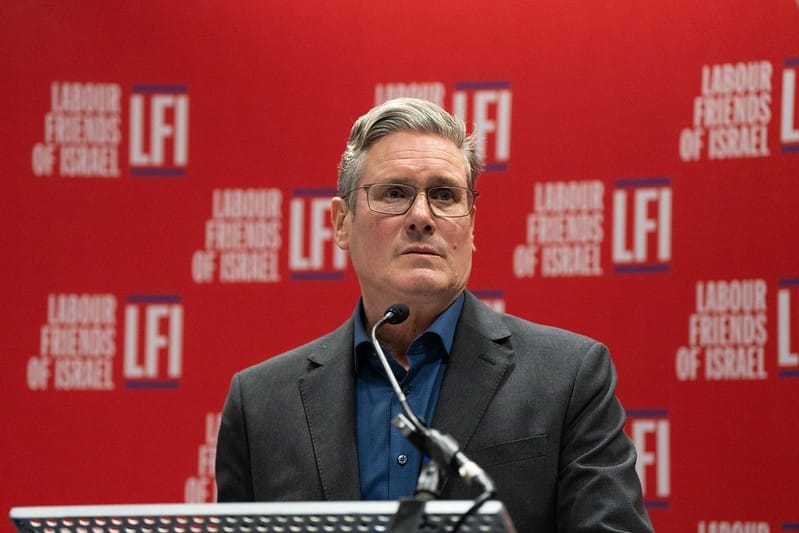Never again, or never compare?
Gary Lineker has a better grasp of the lessons we should be taking from the Holocaust than many of our communal leaders.
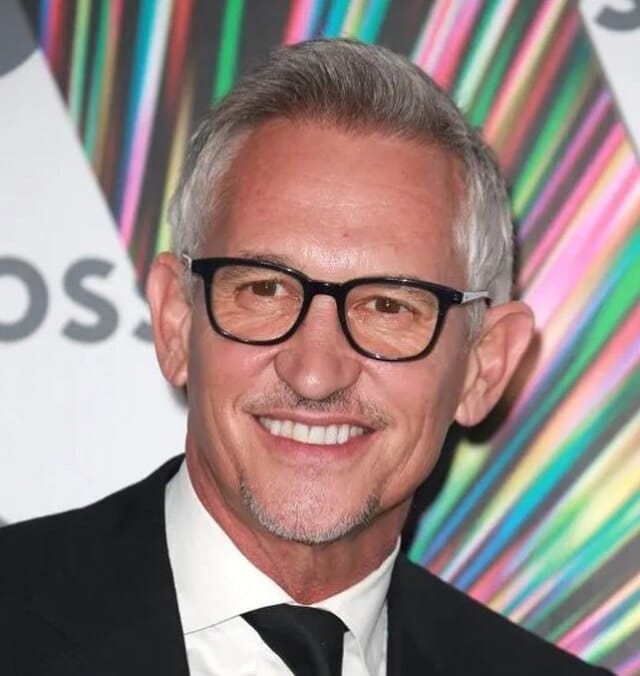
Gary Lineker’s shock suspension from Match of the Day sent Britain into a tailspin, with striking strikers, reduced sports programming and cringe-inducing football hot-takes from Tory MPs.
The explosive row hinged on whether Lineker had violated his duty to be politically neutral, provoking an unprecedented show of solidarity that may have terminally damaged the BBC’s reputation. Critics who have long insisted that BBC political impartiality has always been something of an illusion may be feeling vindicated.
It’s easy to lose track of the inciting incident: a tweet in which Lineker compared the UK government’s new immigration policy to Nazi Germany. This aspect of the controversy relates to the ever-contentious dimension of Holocaust memorialisation – namely, whether treating Nazi crimes as a unique, singular evil that can never be replicated in history, let alone invoked to caution against creeping fascism, preserves the sanctity of the event or renders slogans like “never again” purely rhetorical.
Moses Seitler unpacks this question for this week’s Pickle, and explains why Gary Lineker has a better grasp of the lessons we should be taking from the Holocaust than many of our communal leaders▼
Aron Keller.
Remembering to forget
by Moses Seitler
After a VAR review, the BBC has reinstated Match of the Day presenter Gary Lineker in time for this weekend’s FA Cup fixtures. Suspended for tweeting that the government’s anti-refugee rhetoric is “not dissimilar to that used by Germany in the 30s”, a solidarity strike by fellow presenters alongside a wave of public support for the nation’s favourite crisps merchant forced the BBC to backtrack. But the debate over whether it’s appropriate to compare the current UK government’s policies to those that led to the genocide of European Jewry rages on.
For some, this was simply an issue of national broadcaster impartiality. But Lineker is not a political or news correspondent and has, like others who appear on the BBC, publicly expressed his opinions before; he regularly shows his support for the struggles of women, LGBTQ people and refugees, and his production company leads a politicised conversation about the meaning of Empire. Only when Lineker made a Holocaust comparison did politicians and the media insist he had crossed a line, because whenever anyone brings up the 1930s and the Holocaust in any context beyond a vague and limited “remembrance” narrative, people panic.
At the heart of the rage directed at Lineker was the idea that the Holocaust is History’s Greatest Evil: the pure embodiment of wrongness akin to no other. How dare anyone compare elements of the Holocaust to anything else? This idea reduces the Holocaust to a measuring stick – on the continuum of immorality, the death camps are the end of the line – not a set of political decisions that led, slowly but surely, to mass extermination.
Those leading the charge of outrage are a subset of “Holocaust educators” – self-appointed communal leaders so rightly concerned with the preservation of Holocaust memory that they prevent any universal lessons being learned from it. They recognise the monstrosity of the event but rarely the political decisions that facilitated it, failing to acknowledge that it was the result of a complex man-made process of dehumanisation and destruction. While large Holocaust charities do now generally recognise other genocides, they still tend to ignore the political decisions and processes that facilitated them.
The reward for gatekeeping the Holocaust’s memory is intimacy with a British state keen to memorialise Britain’s supposedly heroic role in it. Such memorialisation centres on the Kindertransport, through which the government enabled the entry of 10,000 Jewish child refugees while turning away many thousands more. This narrative deliberately omits the fact that Britain knew about the concentration camps for years before the end of the war and simply chose not to act, and that the urgency of the situation for some of those children necessitated the forging of visa documentation – lest that reveal the lunacy of the government’s current immigration policy.
In rhetoric, too, there are parallels between 1930s Germany and today’s British government. When announcing the new migration bill to parliament, Suella Braverman insisted that she was acting in accordance with “the will of the British people”; Nazi propaganda was similarly rooted in the supposed best interests of the German nation – an invention designed to push normal citizens beyond the limits of their own morality. In the words of the British gay icon Quentin Crisp, this is what made Germany decades later “a country of elderly people scratching their heads and saying, ‘I don’t know quite what came over me!’”.
Amid the furore surrounding Lineker’s tweet, Braverman also claimed that she was personally offended by his comments due to her Jewish husband having lost family in the Holocaust. But if she was really concerned about the Holocaust’s legacy, she would know that the British government banned the immigration of adult Jews in the late 1930s. (She would also know that the first legislative form of immigration control in Britain was the 1905 Aliens Act, created for the express purpose of keeping out Jews fleeing pogroms in eastern Europe; Jewish communal leaders drank the Kool-aid on such controls, distancing themselves – middle-class Anglo-Jews – from poor Ostjuden).
Indeed, the government’s position throughout the second world war was the same as Braverman’s today: asylum seekers who cannot rely on an official resettlement scheme are not our problem, and should be left to die. By refusing to acknowledge the relationship between then and now, Holocaust memorialisation becomes morally and politically bankrupt. To make “never again” more than an empty slogan, we must apply it to the present day – and be unafraid to make the most serious comparisons.
Every time the Holocaust is taught in schools and alluded to in popular culture, we have an obligation to present it not as a one-off event but the end-point of a political process of disempowerment and persecution that can and will be repeated unless we guard against it. When we see the first stages of that process kicking into gear, we have to set aside proprietary pain and call out what we recognise so intimately. That is the essence of “never again”, and Gary Lineker gets it more than many so-called Holocaust educators.▼
Moses Seitler is the executive director of Screen Share UK, a charity supporting the digital inclusion of young refugees and asylum seekers, and the lived experience manager at Refugee Education UK.
Author

Moses Seitler is the executive director of Screen Share UK, a charity supporting the digital inclusion of young refugees and asylum seekers, and the lived experience manager at Refugee Education UK.
Sign up for The Pickle and New, From Vashti.
Stay up to date with Vashti.
